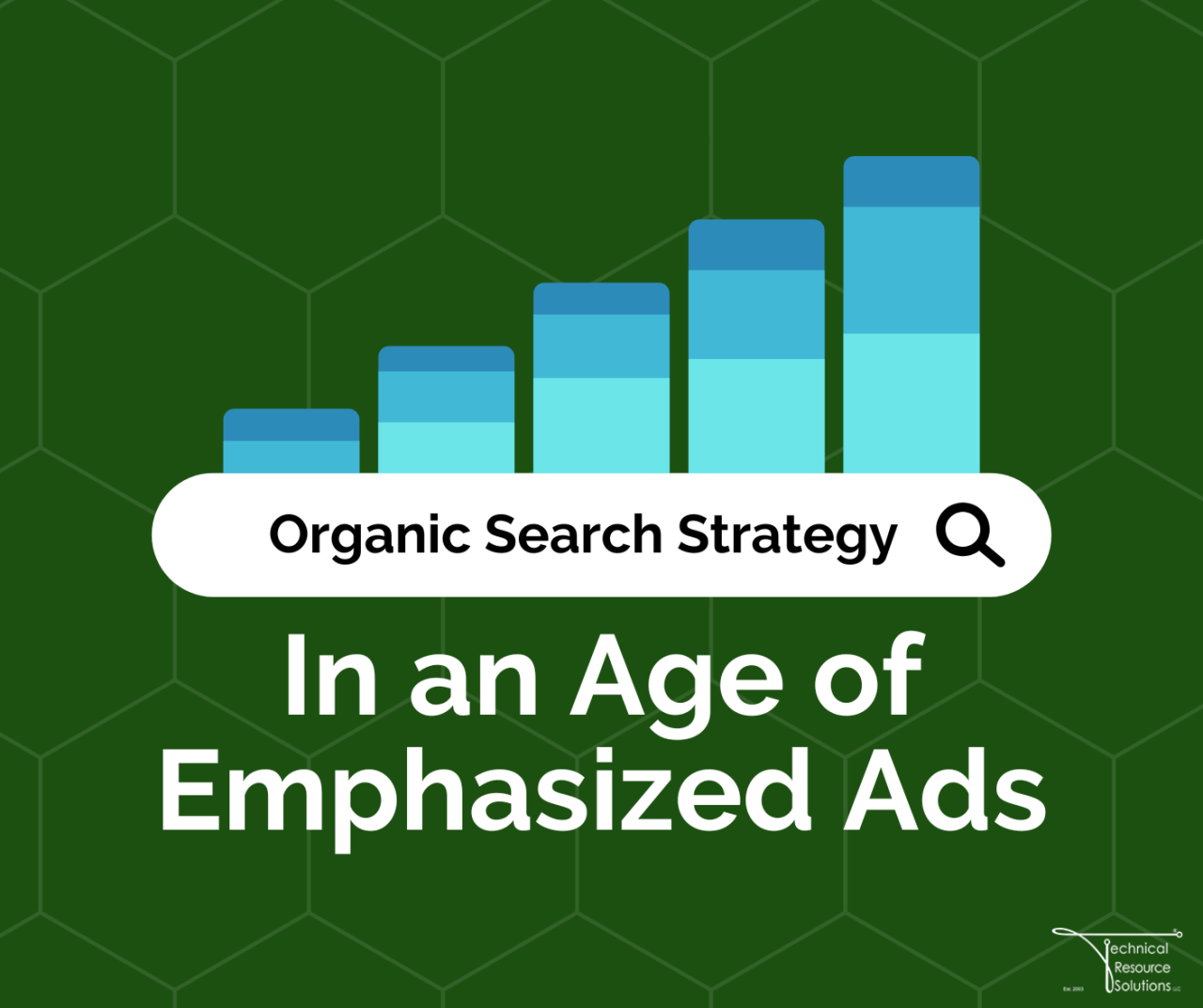Organic Search Strategy in an Age of Emphasized Ads
One of the tenets of a strong website marketing strategy includes a fair amount of work in Search Engine Optimization: the process of making your website more attractive to search engines and the people using them. SEO is still the end all, be all of search engine ranking, however some seemingly recent changes have made even more apparent the need to augment strong SEO with other methods of search ranking. Some of us have noticed around the office that Search ads on specific queries are displaying in larger quantities, sometimes going as far as pushing all organic results "below the fold."
How Google Displays Results
Search Engine Optimizers and Search Engine Marketers use the term SERP, or Search Engine Results Page, to understand page ranking for websites. What does the SERP for this query look like? Where does my client rank among those results? What other features are generated, like "People Also Asked" boxes or Google Maps modules, that might push my result further down the page? These questions and more help us to understand the playing field. After all, the first rule of competition is to know your competitors.
When to Use Paid Ads
The important thing to remember is that paid ads are not a replacement for good, old-fashioned SEO, and SEO is not a replacement for a paid ad – they serve different purposes and can absolutely attract different clients. SEO is the foundation upon which your online reputation is based, and SEO is the option you'll always have when ad spend is not feasible. Maintaining SEO will keep you competitive among other organic search results.
Search ads, on the other hand, can provide more than a few bonuses to your search engine marketing strategy. Search ads always appear at the top of a SERP and can be custom-tailored to ensure that your website is relevant specifically to a user's search query. Additionally, in those rare cases where ads and extra search content end up pushing the organic results "below the fold," your paid ad can be seen before a user has to do any scrolling.
Search Ads Can (Indirectly) Support SEO
A page with strong SEO meets these requirements: it loads quickly, provides the information a user needs to access in a manner that truly helps the user, is mobile responsive and accessible, encourages users to spend a decent amount of time on the page, and is frequently linked to by other users or websites. While paid ads don't directly help your ranking in organic search, they do help to bring your website to the top of the page, encouraging users to click through to your content. If your content meets those SEO requirements, there's a stronger likelihood of that content being shared around, meaning that while you may have paid once for an ad click, the ROI is much higher thanks to the clicks from shares and the indirect SEO boost.
Is It Still Feasible to Rely Solely on Organic Search?
The bottom line of all "free" services is that they must make money through alternative means beyond a paid subscription from users. The way that Google makes money is by offering paid ads to individuals and organizations and backing the value of those ads against users' information they've collected. Recently, we've noticed an increase in the paid ad prevalence, and that trend is not likely to reverse itself anytime soon. Getting in on search ads early can give you a chance to collect valuable data on how to optimize the ads you publish and get the highest ROI you can, while waiting can mean a tougher uphill battle to optimize ads while everyone else is already competing strongly.
There are a huge variety of ads available, such as Search Ads, Video Ads, Banner Ads, Social Media Ads, Video Ads, Local Service Ads and more. If you would like to learn more about paid ad strategy from our Google-certified marketing experts, contact us today!
Submit a Support Ticket
If you utilize the Technical Resource Solutions Ticketing Portal to manage and create tickets, click the button below to open a new support ticket.
Ticketing PortalIf you do not currently have access to the ticketing portal, give us a call to request access.
Call TechnicalRS





